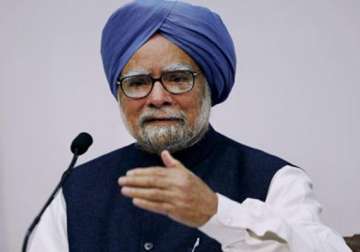New Delhi: Former Prime Minister Manmohan Singh had exerted pressure on the collegium headed by then Chief Justice of India R C Lahoti in June 2005 to confer permanent status to a Madras high court additional judge, referred to as "corrupt" by retired Supreme Court judge Markandey Katju.
According to sources PMO's office sent a note to collegium of Supreme Court judges backing the confirmation of a judge of the Madras High Court.
But Supreme Court judges refused to budge. Then law minister again wrote to them stressing that government is backing the judge.
R C Lahoti who was the Chief Justice at that time cleared the extension of the judge but didn't confirm him. However he attributed his decision to the "sensitivity of the government on the issue".
The collegium of the Supreme Court had initially shown hesitation in recommending an extension to the judge but had later decided to do so after being nudged into the decision by the UPA government, it was revealed by Ravi Shankar Prasad, the Union Law Minister, in the Parliament on Tuesday.
Prasad has said that in 2003, there had been ‘certain reservations' in the collegium, and that it had amde certain enquiries, following it it had decided that this judge's case should not be taken up.
However, later during the rule of the UPA, a clarification had been sought by the Prime Minister's Office (PMO) asking why the judge should not be recommended, said the Law Minister today in the Lok Sabha.
He added that the collegium had said again that he should not have been recommended at all.
Later the Law Ministry's Department of Justice had sent a note to the collegium, written by then Law Minister HR Bhardwaj, after which it had said that the judge's case may be considered for an extension, said Prasad, who added that the matter had stood there thereafter.
Justice Katju has defends the allegations about the timing of his disclosure by saying that doing it earlier would have been a violation of judicial discipline.
Justice Markandey Katju had recently revealed that an additional judge of the Madras High Court, who had been under a corruption cloud, and who also had an adverse IB report, had gotten not only an extension but had been made permanent.
Justice Katju had also alleged that the additional judge had been backed by a Tamil Nadu party that had been a key ally of the UPA governemnt.
He had further accused three former Chief Justices of caving in to pressure in the case of the judge.
On Monday, Former Law Minister H R Bhardwaj, who had been in power from 2004 to 2009, had admitted that a district judge who had been appointed as a Madras High Court additional judge in 2009, and who had later been confirmed in spite of adverse intelligence reports, had had significant political backing.
Latest India News
